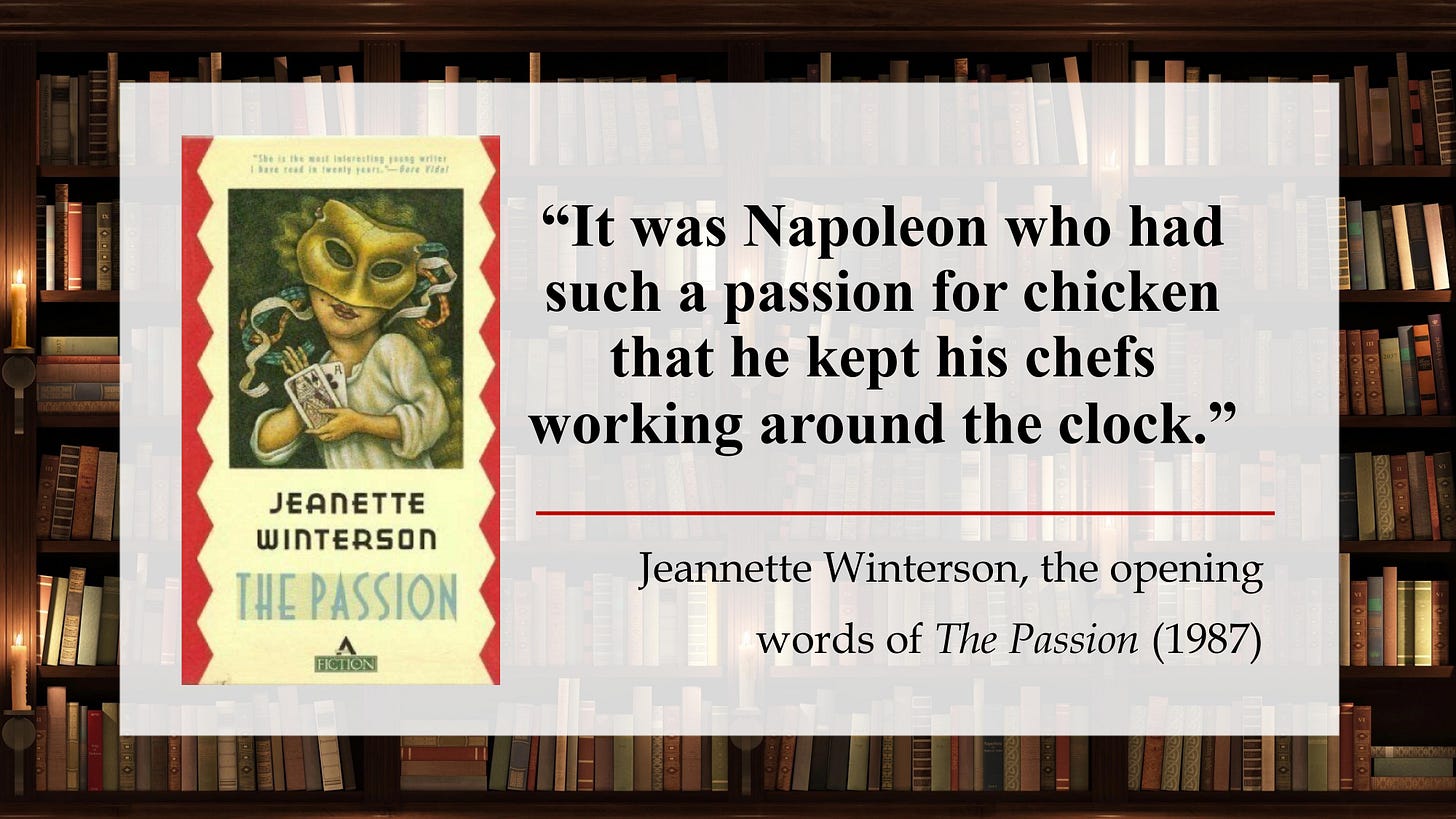Opening Line of the Week
The opening words come from the novel’s narrator, a man known only as Henri, and a French foot-soldier in the personal service of Napoleon. At five-feet-two, his short stature has played a major role in his advancement, as no one above that height has ever been selected to wait on the diminutive Emperor (approximately five-feet-…
Keep reading with a 7-day free trial
Subscribe to Dr. Mardy's Substack to keep reading this post and get 7 days of free access to the full post archives.



